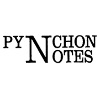Abstract
One should think that Kafka, in "In the Penal Colony" (with a low pun on "penile" which Pynchon would probably approve of), had imagined the cruelest of writing machines. With this infernal apparatus, the law writes the commandment the accused has allegedly broken directly onto the body, with the criminal sentence and the linguistic sentence becoming identical in a slow, painstaking and agonizing process of reading and writing. Of course this happens without a Trial and without the victim's knowledge of the accusation. The accused is strapped to a bed while from above a large number of descending needles, the equivalent of the pen, puncture the skin, the equivalent of the empty page, in a hieroglyphics of blood. As the officer tells the explorer: '''You have seen how difficult it is to decipher the script with one's eyes; but our man deciphers it with his wounds'" (141). In Kafka's parable, the realization of the accusation–the victim's "enlightenment" –coincides with the moment of death. Strapped into Kafka's nightmare, the victim can decipher the message only at the terminal moment of physical and psychic dissolution. Ironically, the deadly epiphany does not open up vistas of the abject chaotics of material death (as the other and the outside of culture). Rather, at the subject's "point at infinity," the victim feels, burning through his whole being, the core of culture: the blazing letters of the law.
How to Cite:
Berressem, H., (1998) “Tristes Traumatiques: Trauma in the Zone:s”, Pynchon Notes , 244-274. doi: https://doi.org/10.16995/pn.151
Downloads:
Download PDF

